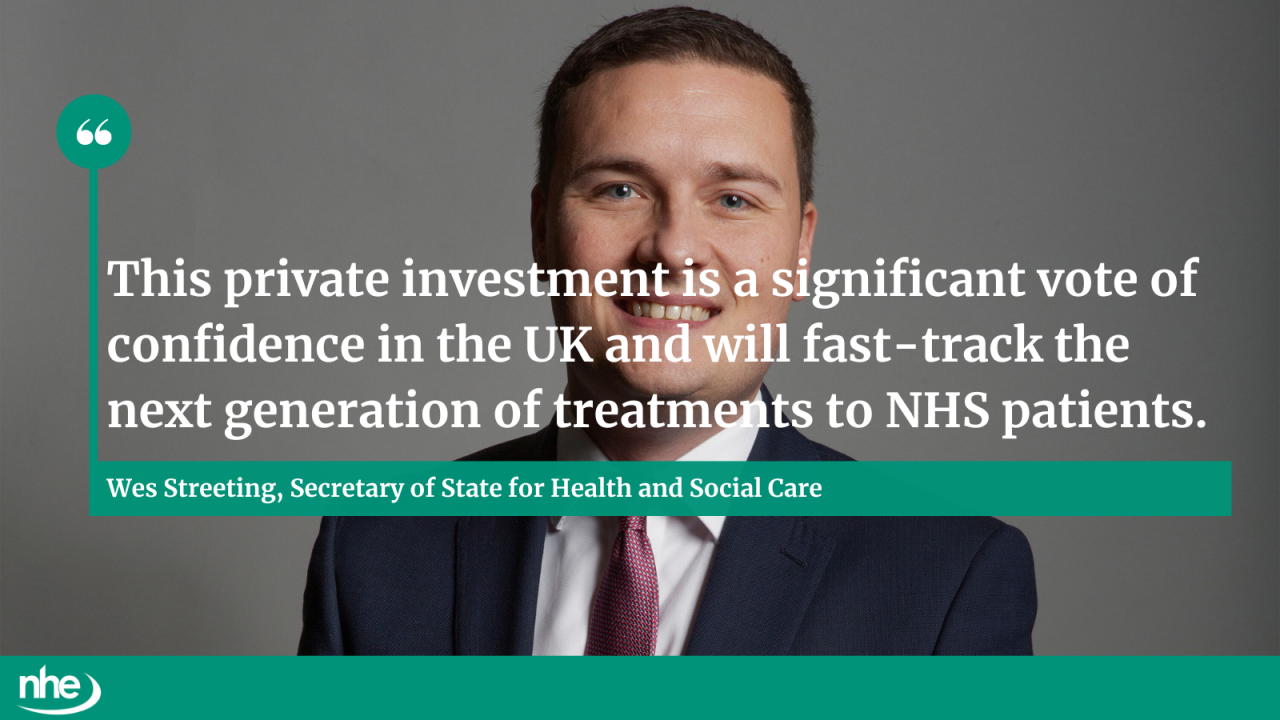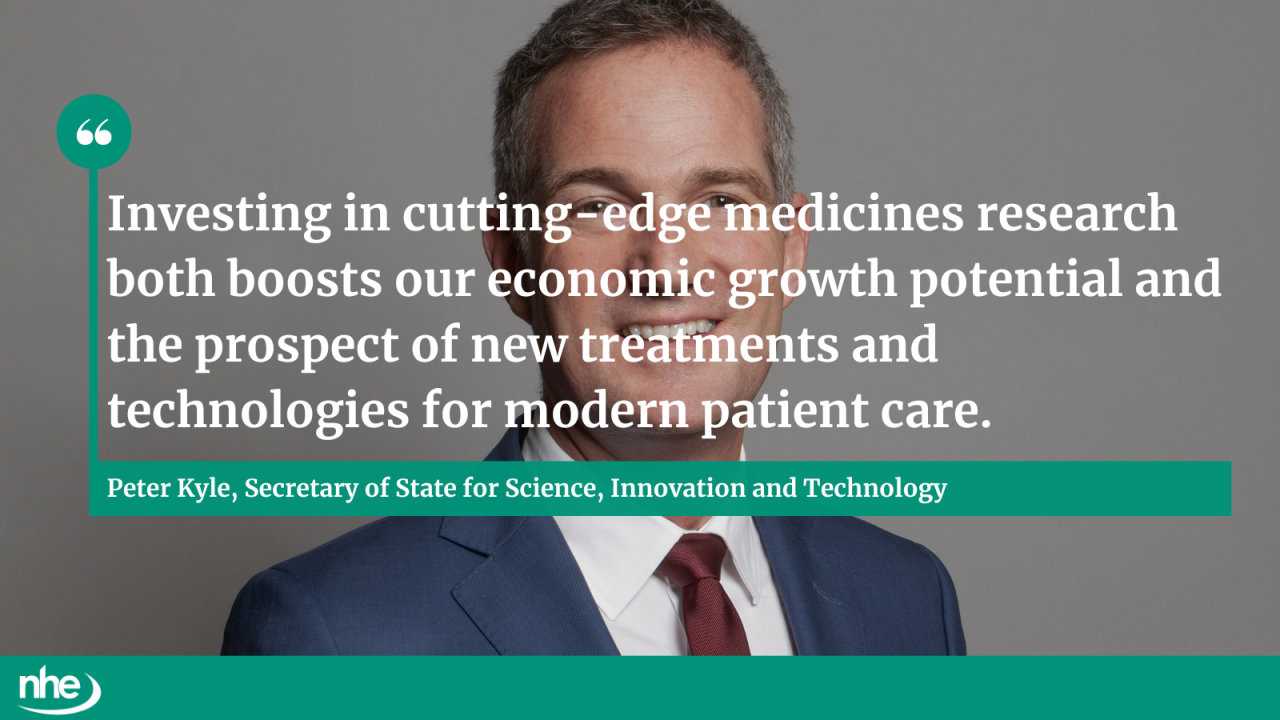Strengthening its place as a home of cutting-edge research, the UK Government has announced that a landmark £400m investment will help expand the country’s life sciences sector and boost clinical trial participation, sustainable manufacturing, and horizon scanning capabilities.
The investment, through the Voluntary Scheme for Branded Medicine Pricing, Access and Growth (VPAG) programme, will come as a close collaboration between NHS England and the:
- Department of Health and Social Care (DHSC)
- Devolved governments
- Office for Life Sciences
- Association of the British Pharmaceutical Industry (ABPI)
Funding breakdown
Around 75% of the funding will be ringfenced for increasing commercial research participation, with 18 new Commercial Research Delivery Centres set to be delivered across England, Scotland, Wales, and Northern Ireland. More of the latest technology will also be made available to researchers, so innovative trial designs can be adopted across hospital, primary, community, and residential care settings.
Approximately 20%, meanwhile, will be directed towards sustainable manufacturing, in turn improving efficiency and cutting waste and carbon emissions across the pharmaceutical sector.

The residual 5% of funding will be used to support the modernisation of health technology assessment (HTA) processes – this will include support for the National Institute for Health and Care Excellence (NICE) HTA Innovation Laboratory, as well as a new horizon scanning database – UK Pharmascan. This will provide leaders will information on new medicines coming to market.
VPAG is expected to streamline patient access to new innovative treatments and subsequently boost health outcomes. The launch of the scheme has been months in the making and will be initially supported by extra investment from the pharmaceutical industry so VPAG can be properly implemented.
The initiatives ultimately align with pre-existing net zero targets, current life sciences targets, and the O’Shaughnessy Review.
Fast-tracking the next generation of treatments
Health secretary Wes Streeting has detailed how he wants to use the NHS as a lever for economic growth.
“This private investment is a significant vote of confidence in the UK and will fast-track the next generation of treatments to NHS patients,” he added. “It will enhance the UK’s global competitiveness and transform the country into the epicentre of health research, supporting an NHS fit for the future.”

CEO at ABPI, Richard Torbett, commented: “The life science industry has the potential to deliver so much more for the UK - but to do this we need to fix the NHS, improve patient access to medicines and invest more in our critical science and regulatory infrastructure.
“This world-first investment programme puts industry money behind the government’s vision to make better health and science a driver of economic growth.”
The government says the £400m will signal the first public-private partnership of this scale in the world. Technology secretary Peter Kyle said that clinical trial support is integral to both economic growth and treatment modernisation.
He said: “We are determined that the most effective new treatments are made available to NHS patients by ensuring the UK is the best place to discover and deploy new medicines, from early research through clinical trials to manufacture.”
The Association of Medical Research Charities’ CEO, Nicola Perrin also welcomed the investment, hailing its potential to make the UK and the NHS a more attractive place for clinical trials.
For more information on the latest news and innovation coming out of the UK life sciences sector, register for a landmark online conference hosted by National Health Executive later this year.
Image credit: iStock



















